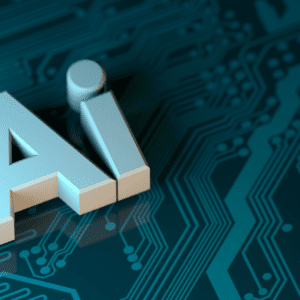
The Role of AI in Modern Computing Systems ( case study )
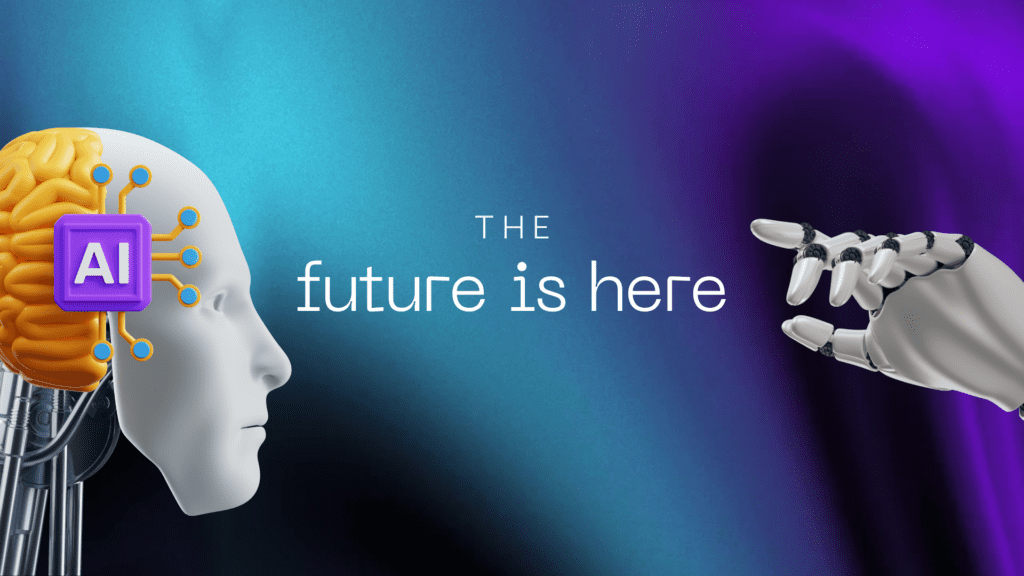
Introduction to Artificial Intelligence (AI)
Artificial Intelligence (AI), a term coined by John McCarthy in 1956, refers to the simulation of human intelligence processes by machines, especially computer systems. These processes include learning, reasoning, problem-solving, perception, and language understanding.
In the context of modern computing systems, AI has become an integral part. It’s transforming the landscape of laptops and desktops, making them smarter and more intuitive. From voice assistants like Siri and Alexa to recommendation systems used by Netflix and Amazon, AI is everywhere. It’s making our devices understand our needs better and provide personalized experiences.
AI is not just about software. It’s also revolutionizing hardware components. Modern processors, GPUs, and memory components are being designed with AI in mind. They are becoming more efficient and powerful, thanks to AI algorithms that optimize their performance.
In the following sections, we will delve deeper into how AI is integrated into hardware and software, how it enhances user experience, its role in cybersecurity, and how it’s shaping the future of computing systems.
AI-Powered Hardware and Software Integration
Artificial Intelligence has become a key player in the realm of hardware and software integration. It’s no longer just about having powerful components; it’s about how these components work together intelligently to deliver superior performance. Artificial Intelligence (AI) has catalyzed a profound transformation in the integration of hardware and software systems, ushering in an era where the synergy between components drives unprecedented performance and efficiency.
AI in Hardware
AI in Software
AI-Optimized Processors
Modern processors are engineered with AI-centric features to meet the demands of complex computational tasks. For instance, Qualcomm’s Snapdragon series integrates AI accelerators that enhance processing efficiency for tasks like image recognition and natural language processing in mobile devices.
Example: The Qualcomm Snapdragon 888 chipset incorporates a Hexagon AI processor that delivers up to 26 TOPS (Trillion Operations Per Second) for AI applications, enabling advanced camera features, voice recognition, and gaming enhancements.
AI-Infused Graphics Processing Units (GPUs)
GPUs equipped with AI-enhanced cores empower diverse applications ranging from gaming to scientific simulations. NVIDIA’s Tensor Cores, found in its GeForce RTX series, leverage AI algorithms for real-time ray tracing and deep learning tasks, revolutionizing visual computing.
Example: The NVIDIA GeForce RTX 30 Series GPUs leverage AI-powered DLSS (Deep Learning Super Sampling) technology to upscale gaming graphics in real-time, delivering sharper images and higher frame rates with minimal performance overhead.
AI-Driven Memory Systems
Memory modules are now augmented with AI capabilities to optimize data access and storage. Samsung’s SmartSSD series employs AI-based algorithms to predict and prefetch data, reducing latency and enhancing throughput in enterprise storage solutions.
Example: Samsung’s SmartSSD Computational Storage Drives leverage AI-driven processing capabilities to analyze data at the storage level, enabling real-time data insights and accelerating data-driven decision-making in data-intensive applications.
AI-Powered Predictive Analytics
AI algorithms embedded within software applications enable predictive analytics, forecasting future trends and behaviors based on historical data. Salesforce’s Einstein Analytics employs AI models to analyze customer interactions and predict sales opportunities, empowering businesses with actionable insights.
Example: Salesforce’s Einstein Lead Scoring uses machine learning to analyze past sales data and customer attributes, assigning a score to leads based on their likelihood to convert, guiding sales teams to prioritize high-value opportunities.
AI-Driven Virtual Assistants
Virtual assistants leverage AI algorithms to understand user queries and execute tasks autonomously. Amazon’s Alexa and Google Assistant employ natural language processing (NLP) and machine learning to provide personalized responses and streamline daily tasks.
Example: Amazon’s Alexa employs AI-based voice recognition and contextual understanding to execute commands such as setting reminders, playing music, and controlling smart home devices, enhancing user convenience and productivity.
AI-Enhanced Cybersecurity Solutions
AI is integrated into cybersecurity software to detect and mitigate evolving threats in real-time. IBM’s Watson for Cyber Security employs AI-powered threat intelligence to analyze vast amounts of security data and identify anomalies indicative of cyber attacks, bolstering enterprise defenses.
Example: IBM’s QRadar Advisor with Watson employs AI algorithms to correlate security incidents with threat intelligence, providing security analysts with actionable insights and recommendations to respond effectively to cyber threats, reducing detection and response times.
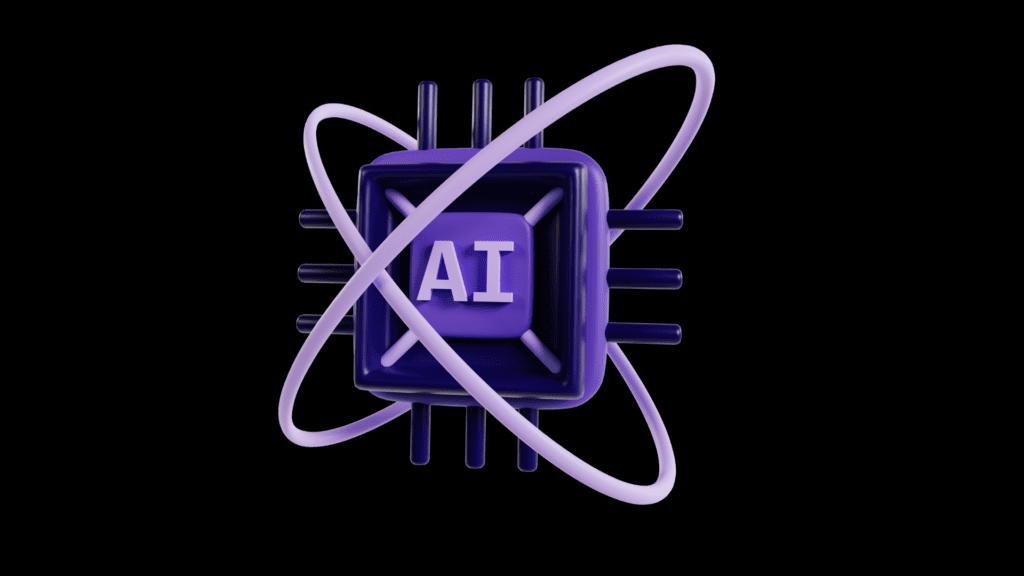



By harnessing the power of AI in both hardware and software domains, organizations can unlock new levels of performance, efficiency, and innovation, driving transformative outcomes across industries.

AI-Driven User Experience Enhancements

Case Study 1: Personalized User Experience Enhancement
Scenario:
Sarah, a freelance graphic designer, relies heavily on her laptop for her work. She often finds herself juggling multiple tasks simultaneously and struggles to manage her time effectively.
Solution:
Sarah’s laptop is equipped with AI-powered productivity features, including predictive typing and smart scheduling. The predictive typing feature suggests relevant words and phrases as she types, allowing her to complete her documents faster with fewer errors. The smart scheduling feature analyzes her calendar and to-do list to automatically schedule tasks and meetings based on her priorities and availability.
Outcome:
With the help of AI, Sarah’s productivity has increased significantly. She spends less time typing and scheduling, allowing her to focus more on her creative work. The personalized recommendations provided by the AI algorithms have also helped her stay organized and on track with her deadlines.
Artificial Intelligence (AI) is far more than just a tool for boosting computational power; it’s also a key player in making computers more user-friendly. In today’s computing landscape, AI technologies are driving significant improvements in user experience.
One of AI’s standout contributions is its ability to personalize the user experience. Through sophisticated algorithms, AI can learn from user behavior and preferences, tailoring computing experiences to individual users. This personalization is evident in AI-powered voice recognition systems like Siri, Alexa, and Google Assistant, which enable users to interact with their devices using natural language. Such systems understand and execute a wide range of commands, simplifying tasks on laptops and desktops.
Additionally, AI-driven facial recognition technology has revolutionized device security and convenience. Users can now unlock their devices using facial recognition, eliminating the need for complex passwords.
Moreover, AI enhances user experience through predictive analytics. By analyzing usage patterns and behaviors, AI can predict what users might do next and prepare the system accordingly. This results in a smoother, more efficient user experience.
Furthermore, AI is continuously evolving, promising even more intuitive and seamless interactions between users and technology in the future. As AI technologies advance, users can expect further enhancements in personalization, security, and efficiency, ultimately reshaping the way we interact with computers and digital devices.
Case Study 2: AI-Enhanced User Support and Assistance
Scenario:
Emily, a college student, encounters a technical issue with her desktop computer while working on a critical assignment. She needs immediate assistance but is unable to reach a customer support representative due to long wait times.
Solution:
Emily’s desktop computer is equipped with an AI-powered virtual assistant that provides personalized user support. Using natural language processing capabilities, the virtual assistant understands Emily’s issue and guides her through troubleshooting steps in real-time. The AI algorithms also analyze past user interactions to anticipate and address common technical issues proactively.
Outcome:
Emily successfully resolves her technical issue with the help of the AI-powered virtual assistant, saving her time and frustration. The personalized user support experience leaves a positive impression on Emily, increasing her satisfaction with the product and the brand. Additionally, the AI-driven proactive support capabilities reduce the need for manual intervention from customer support representatives, leading to improved efficiency and cost savings for the company.
Productivity and Efficiency
AI is not just making computing more enjoyable; it’s also making it more productive. organizations are constantly seeking ways to increase productivity and efficiency to stay ahead of the competition. Artificial Intelligence (AI) has emerged as a powerful ally in this pursuit, offering innovative solutions that can streamline processes, automate tasks, and unlock valuable insights. From data analysis to workflow optimization, AI is revolutionizing the way we work, enabling businesses to operate more effectively and drive growth. Lets see some areas where AI is used.

Enhanced Data Analysis
AI-powered tools can analyze large volumes of data quickly and accurately, helping businesses extract valuable insights and make informed decisions. From financial forecasting to market trend analysis, AI algorithms can identify patterns and trends that may not be immediately apparent to human analysts, thereby streamlining decision-making processes and improving productivity.

Automated Document Processing
AI-based document processing tools can automate tedious tasks such as data entry, document categorization, and information extraction. These tools use techniques like natural language processing (NLP) and optical character recognition (OCR) to extract relevant information from documents, reducing manual effort and improving efficiency in tasks such as invoice processing, contract management, and data entry.

Virtual Assistants and Chatbots
AI-powered virtual assistants and chatbots can handle routine inquiries, perform tasks, and provide information or assistance to users. By leveraging natural language understanding and machine learning algorithms, these virtual assistants can streamline customer support, employee onboarding, and internal communication processes, freeing up human resources to focus on more complex tasks and improving overall productivity.

Automated Workflows and Task Management
AI-driven workflow automation platforms can streamline business processes by automating repetitive tasks, routing work items to the appropriate individuals, and optimizing task allocation based on workload and resource availability. By reducing manual intervention and streamlining workflow processes, these platforms enable organizations to operate more efficiently and effectively, ultimately driving productivity gains across the organization.

Behavioral Analytics and Performance Optimization
AI-powered analytics platforms can track user behavior, identify patterns, and provide insights into individual and team performance. By analyzing factors such as work habits, communication patterns, and task completion rates, these platforms can identify areas for improvement, optimize resource allocation, and enhance overall productivity within an organization.
Case Study 1: AI-powered Document Processing
Scenario:
A large financial institution was struggling with processing a high volume of invoices manually, which was time-consuming and prone to errors. The manual process involved manually entering data from invoices into the company’s financial system, which led to delays in payment processing and inaccuracies in financial reporting.
Solution:
The company implemented an AI-powered document processing solution that used Optical Character Recognition (OCR) and Natural Language Processing (NLP) techniques to extract relevant information from invoices automatically. The system was trained to recognize various formats of invoices and extract key data points such as invoice numbers, vendor names, and amounts.
Outcome:
The implementation of the AI-powered document processing solution significantly reduced the time and effort required for invoice processing. The system was able to process invoices at a much faster pace than human analysts, with higher accuracy and fewer errors. This led to improved financial reporting and faster payment processing, ultimately enhancing the company’s overall productivity.
Case Study 2: AI-driven Chatbot for Customer Support
Scenario:
A retail company was facing challenges in managing high volumes of customer inquiries through its customer support team. The team was overwhelmed with routine inquiries, leading to long wait times and customer dissatisfaction.
Solution:
The company introduced an AI-powered chatbot that could handle routine inquiries and provide instant responses to customers. The chatbot was trained to understand and respond to a wide range of customer queries, freeing up the customer support team to focus on more complex issues.
Outcome:
The implementation of the AI-powered chatbot led to a significant reduction in the workload of the customer support team. Customers were able to get their queries resolved quickly, leading to improved customer satisfaction. The chatbot also helped the company to operate more efficiently, as it could handle a large volume of inquiries simultaneously, without the need for additional human resources.
As organizations strive to stay ahead of the competition, AI emerges as a powerful ally in this pursuit, enabling businesses to operate more effectively and drive growth. From enhanced data analysis to automated document processing and virtual assistants, AI-driven technologies are reshaping the way we work, paving the way for a more streamlined and productive future.
AI for Security and Privacy in Computing Systems
In an era where data breaches and cyber threats are prevalent, security has become a paramount concern for all computing systems. Artificial Intelligence plays a crucial role in enhancing the security and privacy of modern laptops and desktops.
AI in Cybersecurity
AI has emerged as a powerful tool in the fight against cyber threats. It can analyze vast amounts of data to detect patterns and anomalies that might indicate a security breach. For instance, AI can identify unusual network traffic or suspicious user behavior that a human might overlook.
Moreover, AI can learn from past incidents to predict and prevent future threats. Machine learning algorithms can be trained on historical cybersecurity data to predict the likelihood of a breach. This allows for proactive threat detection and response, significantly reducing the potential damage from cyber attacks.
AI is also used in malware detection and prevention. Traditional antivirus software relies on signature-based detection, which can only detect known threats. In contrast, AI can analyze the behavior of files and applications to detect previously unknown malware.

Case Study : Enhanced Security and Privacy
Scenario:
Meet John, a seasoned business executive entrusted with handling sensitive company information stored on his desktop computer. Concerns about the security and privacy of his data, particularly when accessing it remotely, loom large in his mind.
Solution:
To address John’s apprehensions, his desktop computer is fortified with cutting-edge AI-powered cybersecurity features. These encompass a comprehensive suite of tools, including advanced threat detection mechanisms and robust data encryption protocols. The AI algorithms work tirelessly, continuously scrutinizing John’s computer for any semblance of suspicious activity. Whether it’s unusual network traffic patterns or unauthorized access attempts, the AI promptly identifies and flags potential threats. Furthermore, all of John’s data undergoes encryption employing sophisticated AI-driven algorithms, thereby fortifying its security posture against any potential breaches.
Outcome:
The integration of AI-powered cybersecurity features yields remarkable outcomes for John. With peace of mind, he can confidently navigate his daily tasks, knowing that his data is shielded from prying eyes and malicious intent. The vigilant threat detection capabilities have proven invaluable, alerting John to several potential security threats in real-time. Armed with this knowledge, he promptly takes proactive measures to mitigate these risks, thereby safeguarding the integrity of the company’s sensitive information. Moreover, the robust data encryption measures serve as an additional layer of defense. Even in the unfortunate event of John’s computer being lost or stolen, the encrypted data remains impregnable, ensuring the confidentiality and integrity of critical business data.
AI for User Privacy and Data Integrity
In addition to bolstering cybersecurity measures, artificial intelligence (AI) emerges as a cornerstone in safeguarding user privacy and upholding data integrity.
The potential of AI extends beyond mere protection; it can actively anonymize user data, rendering it considerably challenging for unauthorized entities to trace back to individual users.
Moreover, AI offers a proactive approach in empowering users to manage their privacy settings more efficiently. By leveraging sophisticated algorithms, AI can discern a user’s privacy preferences and seamlessly adapt the settings of new applications or services to align with those preferences. This proactive stance not only enhances user control but also fosters a heightened sense of trust and confidence in digital interactions.

AI in Product Development and Customization
Artificial Intelligence is not just enhancing the user experience and security of computing systems; it’s also revolutionizing the way these systems are developed and customized.
AI in Manufacturing Process
AI is playing a significant role in streamlining the manufacturing process of laptops and desktops. It’s being used to automate various stages of the production cycle, leading to faster production times and reduced costs.
For instance, AI algorithms can predict the optimal sequence of assembly operations to minimize the time taken to assemble a laptop or a desktop. They can also identify potential bottlenecks in the production line and suggest ways to eliminate them.
Moreover, AI can monitor the quality of products in real-time during the manufacturing process. It can detect defects or anomalies that might be missed by human inspectors, ensuring that only high-quality products reach the customers.
AI in Product Customization
In addition to improving the manufacturing process, AI is also enabling companies to offer customized solutions to their customers. By analyzing customer data, AI can predict user preferences and suggest personalized product configurations.
For instance, if a customer frequently uses graphic-intensive applications, the AI might suggest a laptop configuration with a high-end GPU. Similarly, if a customer primarily uses their laptop for browsing and streaming, the AI might recommend a configuration with a focus on battery life.
This level of customization not only enhances user satisfaction but also helps companies differentiate their products in a competitive market.


Case Study 1: AI in Manufacturing
Scenario:
A computer hardware manufacturer wants to develop a new line of high-performance gaming laptops. However, designing and optimizing the components and configurations for various use cases can be a complex and time-consuming process.
Solution:
The manufacturer employs AI-powered design and simulation tools to assist in the product development process. These tools can analyze vast amounts of data, including customer preferences, performance benchmarks, and component compatibility, to generate optimized designs and configurations for different gaming scenarios.
The AI system can simulate various hardware configurations, testing them against different gaming workloads and performance metrics. It can also identify potential bottlenecks, thermal issues, or compatibility problems, and suggest design improvements or alternative component selections.
Outcome:
By leveraging AI in the product development process, the manufacturer can significantly reduce the time and resources required for designing and testing new gaming laptop models. The AI-powered tools can quickly generate multiple optimized designs tailored to specific gaming genres or user preferences, ensuring that the final products meet the needs of various gaming audiences.
Additionally, the AI-driven simulations can identify potential issues early in the development cycle, allowing the manufacturer to address them proactively, leading to improved product quality, reliability, and customer satisfaction.
Case Study 2: AI in Product Customization
Scenario:
A computer retailer wants to offer personalized configurations for their desktop systems to cater to the diverse needs of their customers. However, manually creating customized configurations for each customer can be challenging and time-consuming, leading to potential errors and customer dissatisfaction.
Solution:
The retailer implements an AI-powered configurator tool that can analyze customer data, such as their intended use cases, budget constraints, and preferences for performance, storage, and other features. The AI system can then generate personalized desktop configurations that optimally match each customer’s requirements.
The AI configurator can also suggest upgrades or alternatives based on the customer’s budget and usage patterns, providing a tailored and informed recommendation for each individual.
Outcome:
By utilizing AI in product customization, the retailer can offer a seamless and personalized experience to their customers. Customers can easily select their desired configurations or rely on the AI-generated recommendations, ensuring that they receive a desktop system that meets their specific needs and budget.
This level of customization not only enhances customer satisfaction but also helps the retailer differentiate its offerings from competitors. Additionally, the AI-powered configurator can reduce the workload on sales staff, allowing them to focus on providing better customer support and service.
AI in Transformative Computing Applications
AI in Autonomous Systems
AI is at the forefront of driving groundbreaking advancements in autonomous systems, revolutionizing industries ranging from transportation to manufacturing. In the realm of self-driving cars, AI algorithms are powering sophisticated perception and decision-making capabilities, enabling vehicles to navigate complex road environments safely and efficiently. Similarly, drones equipped with AI technologies are revolutionizing sectors such as agriculture, infrastructure inspection, and emergency response, offering unparalleled aerial intelligence and operational efficiency. Moreover, AI-driven robotic systems are transforming manufacturing processes, logistics operations, and healthcare delivery, enhancing productivity, and safety. AI is not only optimizing resource utilization and minimizing human error but also opening up new opportunities for innovation.

AI in Environmental Computing Systems:
The integration of AI into environmental computing systems drives asignificant progress in understanding and mitigating environmental challenges. AI-powered climate modeling uses vast datasets and complex algorithms to simulate and forecast climate patterns accurately, informing stakeholders about climate change impacts and adaptation strategies. AI algorithms revolutionize pollution monitoring by analyzing sensor data, satellite imagery, and environmental records to identify pollution sources and assess air and water quality in real time. Additionally, AI-driven natural disaster prediction systems enhance early warning capabilities for events like hurricanes and wildfires, enabling proactive measures to protect lives and property while enhancing sustainability efforts and safeguarding our planet.

AI and Human-Machine Collaboration
AI transforms human-machine collaboration, unlocking creativity, innovation, and productivity across domains. AI augments human capabilities with intelligent algorithms, enabling seamless collaboration in tasks from data analysis to decision-making. In healthcare, AI-powered diagnostic tools assist medical professionals in diagnosing diseases and designing treatment plans, improving patient outcomes. In creative industries, AI algorithms empower individuals to explore new creative avenues in music composition, art generation, and content creation. In industrial settings, collaborative robots (cobots) with AI capabilities enhance productivity and safety alongside human workers. Harnessing AI in human-machine collaboration unlocks synergies between human ingenuity and machine intelligence, driving transformative advancements across industries.

Future Trends and Innovations in AI Computing Systems
As we look towards the future, it’s clear that Artificial Intelligence will continue to play a pivotal role in shaping the landscape of computing systems. Here are some of the upcoming trends and innovations that we can expect in this space.
AI-Enhanced Processors
Advancing AI Workloads with Specialized Hardware, we can expect to see more processors designed specifically for AI workloads. These processors will have specialized cores and instructions for AI tasks, leading to significant performance improvements for AI applications. As technology evolves, these processors are poised to revolutionize the field of artificial intelligence. With ongoing research and development, future promises greater advancements in AI hardware capabilities.
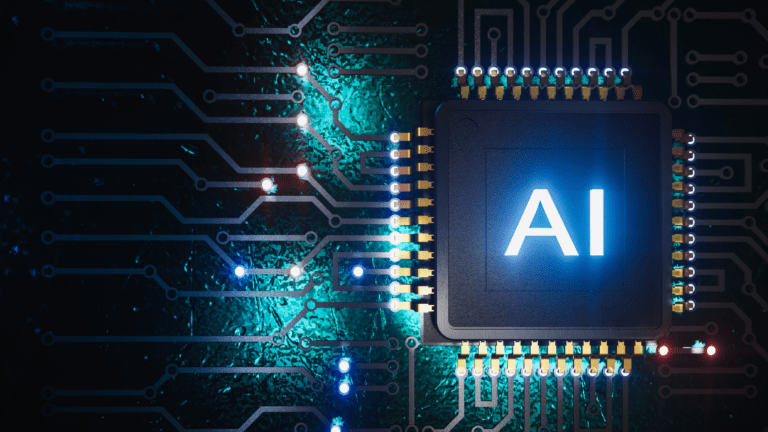
Quantum Computing and AI
Quantum computing, which leverages the principles of quantum mechanics to perform computations, is another area where we can expect significant advancements. Quantum computers have the potential to solve complex problems much faster than traditional computers. As these technologies mature, we can expect to see them being used in conjunction with AI to solve complex problems in areas like cryptography, optimization, and machine learning.
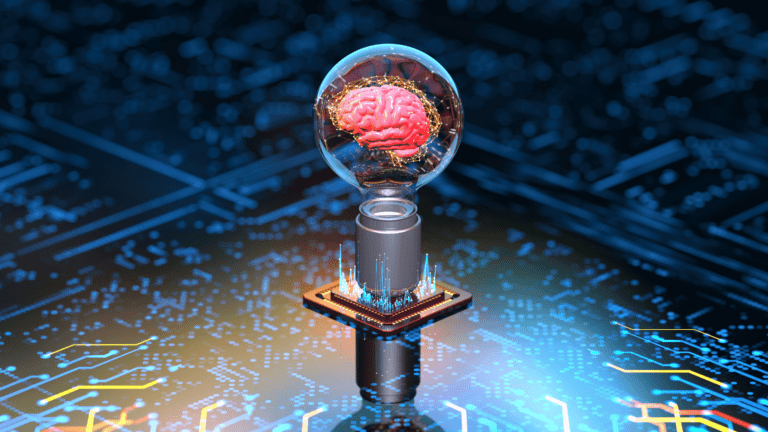
AI and Edge Computing
Edge computing, where computations are performed close to the source of the data, is another area where AI is expected to have a significant impact. By processing data on the edge, AI applications can provide real-time insights without the need to send data back and forth to a central server. This can lead to significant improvements in speed and efficiency, especially for applications that require real-time decision making.

Toward Ethical AI: Navigating Key Challenges and Solutions
As AI capabilities advance, proactive ethical frameworks and policies must be developed to guide responsible AI deployment and mitigate potential risks to society. Embracing ethical principles ensures that AI technologies benefit humanity while upholding values of fairness, transparency, and accountability. Here are several key points to explore
Privacy and Data Breaches
Risk: The storage and processing of large datasets raise the risk of data breaches.
Mitigation Strategies:
- Secure Storage: Implement robust security measures to protect sensitive data.
- Data Minimization: Collect only necessary data to reduce exposure.
- Encryption: Encrypt data during storage and transmission.
Accountability for AI Mistakes
Challenge: When AI makes a mistake, it’s unclear who should be held accountable.
Mitigation Strategies:
- Clear Ownership: Define responsibility within organizations for AI decisions.
- Traceability: Maintain records of AI processes and decisions.
- Human Oversight: Involve human experts in critical decisions.
Fairness and Discrimination
Concern: Biased AI systems can perpetuate inequalities and unfair treatment.
Mitigation Strategies:
- Fairness Metrics: Define fairness metrics and evaluate AI performance.
- Algorithmic Audits: Regularly audit AI systems for discriminatory patterns.
- Ethical Guidelines: Follow guidelines that prioritize equitable outcomes.
Explainability and Transparency
Challenge: AI decisions are often not intelligible to humans.
Mitigation Strategies:
- Interpretable Models: Develop models that provide explanations for their decisions.
- Visualizations: Use visualizations to make AI processes more transparent.
- User-Friendly Interfaces: Design interfaces that allow users to understand AI reasoning.
Environmental Sustainability
Issue: AI models require significant computational resources, impacting the environment.
Mitigation Strategies:
- Efficient Algorithms: Optimize algorithms to reduce resource consumption.
- Green Computing: Explore energy-efficient hardware and data centers.
Inclusion and Accessibility
Goal: Ensure AI benefits all, regardless of background or abilities.
Mitigation Strategies:
- Universal Design: Create AI systems accessible to diverse users.
- Ethical Considerations: Prioritize inclusivity during AI development.
Value Alignment and Moral Agency
Challenge: Ensuring AI aligns with human values and ethical norms.
Mitigation Strategies:
- Human-Centric Design: Involve diverse stakeholders in AI development.
- Ethical Frameworks: Apply ethical principles to guide AI behavior.
Trust and Accountability
Importance: Building trust in AI systems is crucial for user adoption.
Mitigation Strategies:
- Transparency: Communicate how AI operates and its limitations.
- Feedback Mechanisms: Allow users to provide feedback and report issues
Technology Misuse and Security
Risk: AI can be misused for harmful purposes (e.g., deep fakes, cyberattacks).
Mitigation Strategies:
- Ethical Guidelines: Develop guidelines to prevent misuse.
- Security Measures: Strengthen AI system security to prevent unauthorized access.
Embracing the AI-Driven Future: A Summary
The integration of Artificial Intelligence into modern computing systems marks a significant milestone in the evolution of technology. From enhancing user experiences to improving productivity and efficiency, AI is reshaping the way we interact with computers and devices. Through personalized user experiences, AI-driven hardware and software integration, and advancements in user support and security, computing systems are becoming more intuitive, efficient, and secure.
Moreover, AI’s impact extends beyond traditional computing realms. With its application in autonomous systems, environmental computing, and human-machine collaboration, AI is driving innovations across various industries. From self-driving cars and drones to climate modeling and disaster prediction, AI is playing a crucial role in solving complex problems and addressing global challenges.
As we look towards the future, the potential of AI in computing systems appears boundless. With ongoing advancements in AI-enhanced processors, quantum computing, and edge computing, we can expect even greater integration and sophistication in computing technologies. Furthermore, ethical considerations surrounding AI will continue to be a focal point, ensuring that AI systems are developed and deployed responsibly.
In essence, the role of Artificial Intelligence in modern computing systems is not merely transformative; it’s foundational. By leveraging the power of AI, we can unlock new possibilities, drive innovation, and create a future where computing systems empower individuals and organizations to thrive in an increasingly interconnected world.
Recent Blogs
Holoware Laptops on EMI for Your Next Device
Startup Scheme for Laptops in India: Growth with Holo50
Holoware: The Best Selling Laptop in India
Best Laptop for Artificial Intelligence in India - Holoware Guide
Best SSD Laptops: Speed, Evolution & Why Holoware Stands Out
Unleashing the i7 Processor Power with Holoware
Choosing the Perfect IPS Screen Laptop by Holoware
Holoware - Choosing a Laptop with Dedicated Graphics Card
Holoware's Best Budget Laptop for Programming
i9 Processor Laptops: Power & Performance at Holoware
About Holoware
Products & Services
Useful Links
©2024 Holoware® Computers Pvt. Ltd. | Site Map | Privacy Policy | Terms & Condition
AI Laptop


Location: Porur,Chennai
No of Openings: 1
Join our team as a Senior Accounts Executive, where you’ll manage client relationships and implement innovative financial strategies. Your expertise in analyzing account performance will drive growth and foster lasting partnerships. If you’re ready to make an impact, we want to hear from you.
Roles and Responsibilities:
- Daily Accounts Receivable Management: Execute daily credit accounting in Tally Prime to ensure accurate financial records.
- Accounts Receivable and Credit Control Management: Administer the accounts receivable process and implement credit control measures to optimize cash flow.
- Invoice Processing and Material Transfers: Handle invoice cancellations and efficiently oversee the transfer of materials to the warehouse.
- Sales Returns and Order Cancellations Management: Process sales returns, record entries, create Post Goods Issues (PGI), and reverse canceled orders for precise sales tracking.
- Dealer Loan Recovery Supervision: Manage the recovery of dealer loans, accurately reflecting these amounts as recoverable income.
- Dealer Debit Data Reporting: Upload monthly dealer debit information to Power BI through Microsoft Azure for accurate financial analysis.
- Bank Reconciliation Tasks: Conduct detailed bank reconciliations to ensure transaction accuracy and resolve any discrepancies.
- Customer Account Reconciliation: Reconcile customer accounts with the General Ledger (GL) to ensure data consistency and accuracy.
- General Ledger Review: Perform monthly reviews of GL accounts to ensure compliance and accuracy in financial reporting.
- Monthly Sales Report Preparation: Compile and present monthly sales flash reports, offering insights into sales performance and trends.
- Monthly Financial Closing Procedures: Manage the monthly closing process, finalizing financial statements and recording all transactions.
- Tax Compliance Management: Prepare and submit Tax Deducted at Source (TDS) returns and issue Form 16 and Form 16A for compliance purposes.
- Employee Payroll Administration: Oversee the timely and accurate processing of employee salaries in line with payroll policies.
- Project Bills and Payment Oversight: Oversee the management of project bills payable, ensuring timely processing of payments to vendors and contractors.
- Project Budget Allocation Management: Allocate project budgets according to expense categories, ensuring effective financial resource utilization.
- GST Compliance Oversight: Manage Goods and Services Tax (GST) returns and TDS calculations to ensure accurate reporting and compliance.
- Audit Coordination: Collaborate with internal and external auditors, providing all necessary documentation for smooth audit processes.
- Audit Process Coordination: Facilitate internal and Auditor General (AG) audits by preparing all necessary documentation for review.
- Government Fund Allocation Liaison: Work with government agencies to coordinate fund allocations, ensuring compliance with regulations.
- Monthly Management Information Reporting: Prepare and present detailed Monthly Management Information System (MIS) reports to senior management.
Key Skills:
- Accounting
- Financial Reporting
- Tally Prime
- Data Analysis
- Reconciliation
- Tax Compliance
- Negotiation
- Problem-Solving
- Time Management
- Team Collaboration
- Vendor Management
Location: Porur,Chennai
No of Openings: 4
Join our team as a Senior Hardware Engineer to design and optimize state-of-the-art computing systems. You’ll leverage your expertise to innovate hardware solutions, ensuring peak performance and reliability in our products. Collaborate with a talented team to tackle complex challenges and help shape the future of technology.
Roles & Responsibilities:
- Lead the assembly process of desktops, laptops, and servers ensuring adherence to technical specifications and quality standards.
- Supervise and train a team of assembly technicians and junior engineers, providing guidance and feedback.
- Collaborate with the R&D and design teams to implement manufacturing processes for new products.
- Develop and optimize workflow to increase efficiency and reduce assembly times and costs.
- Maintain detailed documentation of assembly procedures and product modifications.
- Conduct quality control checks and troubleshoot hardware issues before final product release.
- Ensure compliance with safety standards and regulations in the assembly line.
- Manage inventory of parts and tools required for assembly processes.
- Stay updated with industry trends, new technology, and best practices in hardware assembly.
Preferred candidate profile:
- Bachelor’s degree in Electrical Engineering, Mechanical Engineering, or a related field.
- Minimum of 5 years of experience in hardware assembly, preferably focusing on PCs, laptops, and servers.
- The maximum age limit is 42 years
- Proven track record of leading a team in a manufacturing or assembly environment.
- Strong technical skills with a deep understanding of computer hardware components and assembly techniques.
- Excellent problem-solving skills and attention to detail.
- Proficient in using assembly tools and equipment.
- Certifications related to hardware assembly or project management.
- Experience in an ISO-certified or other regulated environment.
Key Skills:
- Service Engineering
- Hardware Networking
- Computer Hardware
- Team Leading
- Chip Level Repairing
- After Sales – Service and Support
- Computer Assembling
Location: Porur,Chennai
No of Openings: 2
Seeking a Senior Executive – International Purchase to spearhead global procurement strategies and secure top-tier suppliers. Harness your expertise to drive cost efficiencies, negotiate high-impact deals, and ensure seamless cross-border operations. Ideal candidates excel in strategic sourcing and thrive in a dynamic, fast-paced environment. Elevate our international purchasing with your strategic vision and industry insight.
Roles and Responsibilities:
- Develop and implement procurement strategies that are cost-effective and aligned with the company’s production needs and budget constraints.
- Identify, evaluate, and select reliable vendors and suppliers. Negotiate contracts and terms of agreements to achieve favourable pricing and delivery terms.
- Maintain optimal levels of inventory to ensure uninterrupted production schedules while minimizing carrying costs and obsolescence.
- Ensure that all purchased items meet quality standards and specifications required by the production process.
- Monitor and control procurement budgets and expenditures. Implement cost-saving initiatives without compromising on quality or reliability.
- Coordinate with production planning and logistics teams to ensure timely availability of materials and components.
- Stay updated with regulatory requirements and ensure procurement activities comply with legal standards and company policies.
- Identify potential risks in the supply chain and develop mitigation strategies to avoid disruptions in production.
- Analyse procurement data and market trends to make informed decisions and optimize purchasing strategies.
- Build and maintain strong relationships with vendors, suppliers, and internal stakeholders to foster collaboration and achieve mutual goals.
Preferred Candidate Profile:
- Proven experience as a Purchase or in a similar role.
- Should have a strong International Procurement experience.
- Strong negotiation skills and the ability to build long-term relationships with suppliers.
- Excellent communication and interpersonal skills.
- Familiarity with supply chain processes and inventory management.
- Bachelors degree in Business Administration, Supply Chain Management, or relevant field.
Location: Porur,Chennai
No of Openings: 2
Dynamic Logistics Executive sought to streamline supply chain operations and optimize distribution networks. Leverage your expertise to drive efficiency, enhance customer satisfaction, and lead innovative solutions. Ideal candidates are proactive problem-solvers with a knack for strategic planning and team leadership. Join us to make a tangible impact in a fast-paced environment!
Roles and Responsibilities:
Imports:
- Receiving the documents from overseas Agents.
- Documents are forwarded to various Liner for IGM filing purposes.
- Follow up on the vessel status for all import shipments through online.
- Providing the vessel details and the IGM number to the consignee once their shipment arrives.
- Issuing the Delivery order to a variety of consignees.
- Regular communication with All Liners/Consignee & Overseas Agent for all Import Shipments.
- As per the Shipper Invoice & Packing List, have prepared the shipment checklist.
- Preparing the necessary documents for clearance purposes
- Regular interaction with Liner for all the shipments.
- BE filing follow-up with CHA and transport movement
- Follow up on the status of all the shipments and inform the same to the respective shipper
- Preparing the Invoices of Various parties.
- Planning for day-to-day clearance on a priority basis.
Exports:
- Booking the cargo for all export shipments to Liner / Consolidator.
- Arranging the Container Release order from the liner and forwarding to the Shipper or CHA
- Informing liner to post the form-13 to CHA ID
- Follow up the container to load on the booking vessel.
- Preparing the Bill of Lading through on-line to various sector
- Based on the Liner invoice, have generated our Invoice for Customers.
- Issuing the Bill of Lading/COO/SCOMET
- Co-ordinating with all Overseas agents/Liner / Shipper/CHA for all export shipments.
- Scrutiny the Freight rates from the Liner / Consolidator and provide the best rate to the shipper).
- SB filing follow-up with CHA and transport movement
Preferred Candidates Profile:
- Tally /SAP/ERP knowledge required.
- Should be strong in Shipping INCOTERMS
- Preparing the Profit & Loss for all shipments (Import & Export)
Location: Bangalore, Hyderabad & Mumbai
No of Openings: 5
We are seeking a Key Account Manager for Corporate Sales who plays a crucial role in driving revenue growth, maintaining strong client relationships, and ensuring customer satisfaction within key accounts. Their responsibilities require a blend of strategic thinking, interpersonal skills, and a deep understanding of both the client’s business and their own company’s offerings.
Preferred Candidate profile:
- Excellent communication, interpersonal and relationship-building skills
- Should have a strong experience in B2B sales.
- Ability to work both independently and collaboratively in a team setting.
- Keen analytical skills and a strategic mindset.
- Willingness to travel for business purposes.
- Proven track record in lead generation and communication
- Ability to work independently and collaboratively
- Experience in the IT hardware/ Technology industry is a plus
- Experience in handling the IT/ITES, Manufacturing, Engineering, Media, BFSI Enterprise accounts is a plus
- Knowledge of IT hardware products is a plus
- Languages: Local Regional language and English are a must; Tamil & Hindi will be an added advantage.
- Preferred experience is 5 to 12 years in the relevant field.
Roles & Responsibilities:
- Establishing and maintaining a strong rapport with the enterprise accounts and the Channel partners in the assigned territories.
- Develop and execute strategic plans to achieve sales targets and expand the company’s customer base within key accounts
- Responsible for selling Artificial Intelligence (AI) Laptops, PCs and other Business Laptop, Executive Laptop, Desktops & Workstations.
- Coordinate with internal teams to ensure contract specifications are met on schedule.
- Analyse market trends and competitor activities to adjust strategies accordingly.
- Create and present detailed reports and presentations for various stakeholders.
- Business Development, Meeting the customers F2F Daily.
- Getting new Logos, generating leads, and providing excellent customer service.
- Drive existing accounts and get new business through SI’s and Large partners.
Location: Porur,Chennai
Languages: Hindi, Kannada, Telugu, Malayalam
No of Openings: 5
We are seeking a motivated and detail-oriented Business Analyst to join our dynamic sales team. The Business Analyst will play a key role in supporting our sales representatives and ensuring smooth operations within the sales department. This position offers an exciting opportunity to contribute to the success of our sales initiatives and provide excellent customer service to our clients.
Roles and Responsibilities:
- Identify potential customers interested in laptops, desktops, and tablets.
- Reach out to these prospects via phone or email to introduce the products.
- Discuss with customers to determine their specific requirements and preferences.
- Recommend and demonstrate the laptops, desktops, and tablets that best fit their needs.
- Track and manage leads through the sales cycle using CRM tools.
- Negotiate terms and close sales for the desired devices.
- Maintain communication with clients to ensure their satisfaction and encourage repeat business.
- Provide updates on sales performance and progress towards targets.
- Coordinate with technical support and product teams to address any issues or questions.
- Prepare and manage quotes, orders, and other sales-related documentation.
Preferred Candidates Profile:
- A bachelor’s degree in business administration, marketing, or a related field is preferred.
- Hindi or other regional languages are preferred.
- Proven experience in a sales support or coordination role, preferably in the technology industry.
- Strong organizational skills with the ability to manage multiple tasks simultaneously and prioritize effectively.
- Excellent communication and interpersonal skills, with a customer-focused approach.
- Proficiency in Microsoft Office suite (Word, Excel, PowerPoint) and CRM software.
- Attention to detail and high accuracy in data entry and record-keeping.
- Ability to work independently and as part of a team in a fast-paced environment.
- Positive attitude, willingness to learn, and adaptability to changing priorities.
Perks and Benefits:
- Opportunity to work with cutting-edge technology and innovative products.
- Collaborative and supportive work environment.
- Career growth and development opportunities within a growing company.
- Make a meaningful impact by contributing to the success of our sales team and driving business growth.
Location: Bangalore & Kochi
No of Openings: 2
We are seeking a Government Sales Specialist with exceptional communication skills and a deep understanding of government operations and procurement processes. This role is ideal for individuals with a strong background in public administration or related fields, who are adept at strategic engagement and building a long-term governmental relationship.
Preferred Candidate profile:
- Proven track record in sales with a focus on government sector engagements.
- Able to manage the GeM (Govt e-Marketplace) portal and Govt tenders.
- Exceptional verbal and written communication skills.
- Strong experience working with CXOs & Procurement Managers.
- Should have a strong experience in stock & sell.
- Ability to work both independently and collaboratively in a team setting.
- Keen analytical skills and a strategic mindset.
- Willingness to travel for business purposes.
- Preferred experience is 5 to 12 years in the relevant field.
- Strong knowledge in handling the state & central government departments within the whole Kerala/Karnataka/Mumbai state.
Roles & Responsibilities:
- Develop and implement effective sales strategies tailored to government sectors.
- Navigate and comply with government procurement policies and regulations.
- Build and maintain robust relationships with key stakeholders within government entities.
- Responsible for selling Artificial Intelligence (AI) Laptops, PCs and other Business Laptop, Executive Laptop, Desktops & Workstations.
- Coordinate with internal teams to ensure contract specifications are met on schedule.
- Analyze market trends and competitor activities to adjust strategies accordingly.
- Create and present detailed reports and presentations for various stakeholders.
Location: Porur,Chennai
No of Openings: 5
As a Level 2 Customer Support Specialist, you will serve as the primary point of contact for customers requiring advanced technical support for desktop/laptop-related issues. You will troubleshoot, resolve, and escalate complex problems, providing exceptional customer service and ensuring customer satisfaction.
Roles and Responsibilities:
- Respond to customer inquiries via phone, email, or chat, resolving Level 2 technical issues related to desktop/laptop hardware, software, and peripherals.
- Troubleshoot and diagnose complex problems using advanced technical knowledge and tools.
- Provide timely and effective solutions, escalating issues to senior technicians or management when necessary.
- Document customer interactions, issues, and resolutions in our CRM system.
- Collaborate with internal teams (e.g., sales, technical) to resolve customer concerns and improve processes.
- Stay up-to-date with industry developments, new technologies, and company products/services.
- Meet or exceed customer satisfaction, first-call resolution, and other performance metrics.
Preferred Candidates Profile:
- 2+ years of experience in technical support, preferably in a desktop/laptop service company.
- Advanced knowledge of desktop/laptop hardware, software, and peripherals.
- Excellent problem-solving, analytical, and communication skills.
- Ability to work in a fast-paced environment, prioritizing tasks and managing time effectively.
- Strong customer service skills, with a focus on empathy and professionalism.
[contact-form-7 id=”f0c372f” title=”Enterprise”]
Rugged Laptop
Rugged Tablet
Tablets
Demo Available*
Inquire About Rental Options
Warranty Offers
- Extended Protection: Warranty offers cover repairs and replacements for hardware failures or defects, saving significant costs on expensive components.
- Professional Support: They provide access to authorized service centers and professional support, ensuring quality repairs with genuine parts.
Services with those steps are available
- Accidental Damage Coverage: Some warranties include coverage for accidental damage, such as drops or spills, providing extra protection beyond standard defects.
- Technical Support: Many warranties offer round-the-clock technical support to help with troubleshooting and resolving software or hardware issues.
- Data Recovery Services: In case of hardware failure, some warranty plans include data recovery services to help retrieve important files and documents.
Solution With 24/7 Support
- 24/7 Technical Support: Many warranty plans provide round-the-clock technical support to assist with troubleshooting and resolving software or hardware issues at any time.
- On-Site Repairs: Certain warranty plans offer on-site repair services, where technicians come to your location to fix issues, minimizing downtime.
- Loaner Devices: Some warranties provide loaner devices while your laptop is being repaired, ensuring you stay productive without interruption.
- Global Coverage: For frequent travelers, some warranty plans offer global coverage, ensuring you can get support and repairs no matter where you are
Get Started
Book Your Demo

In 1994, Mr.Thangavel started Origin Information Technology (in partnership with Mr. Loganathan) to provide quality computer hardware sales and service. In the year 2022, the company name was changed to “Tinkas Industries Private Limited” to encompass its diversified activities. Mr. Thangavel feels that he can give back to his nation the growth it needs in many ways like providing employment opportunities to many, and doing CSR activities, etc. His goal is to make Tinkas a leader at the National and Internaltional levels.
Holoware CEO abut Tinkas CEO
“The CEO of Tinkas (Mr.Thangavel) is undeniably one of the most practical and resourceful individuals I’ve encountered in Tamil Nadu. His profound understanding of the industry coupled with his diverse business ventures truly exemplifies his wealth of knowledge. Partnering with Tinkas has been a delight, and we eagerly anticipate further growth and collaboration.”
Mr. Ketan Patel is an indomitable entrepreneur revolutionizing the landscape of electronic consumer products worldwide through an unparalleled ‘experiential journey.’ Leading Creative Newtech since 1992, he steered its growth from a Mumbai market trader to a distributor and Brand Licensee. As an alumnus of IIM-Bangalore, Mr Patel leads Creative Newtech with a focus on innovation and strategic leadership. Under his three-decade leadership, Creative Newtech has become India’s market leader, expanding globally across Hong Kong, the Middle East, and the SAARC region.”
Holoware CEO abut Creative Newtech CEO
“The CEO of Creative (Mr.Ketan Patel) is a highly knowledgeable leader, renowned for his expertise in distributorship. His intuitive knack for product selection and sales strategies, both in India and abroad, is impressive. Creative thrives as a powerhouse, fueled by its diverse team and collective expertise. We eagerly look forward to a promising future and further success in our collaboration with Creative.”

Inmac Computers Private Limited is a trailblazing name in the realm of IT services and solutions. With a remarkable inception in 1992 by visionary entrepreneurs Girish Babu and Asha Girish Babu, our company has consistently remained at the forefront of technological innovation, setting new standards for excellence in the industry.
Holoware CEO abut Inmac CEO
“Inmac’s CEO (Mr.Girish Babu) is one of the most humble and generous individuals I’ve ever had the pleasure of meeting. His leadership has been instrumental in steering his team to success, not just in Maharashtra but across various regions in India. Their financial stability over the years speaks volumes about his capabilities. It’s truly a delight to collaborate with someone of his caliber. I look forward to continued partnership with Inmac.”










